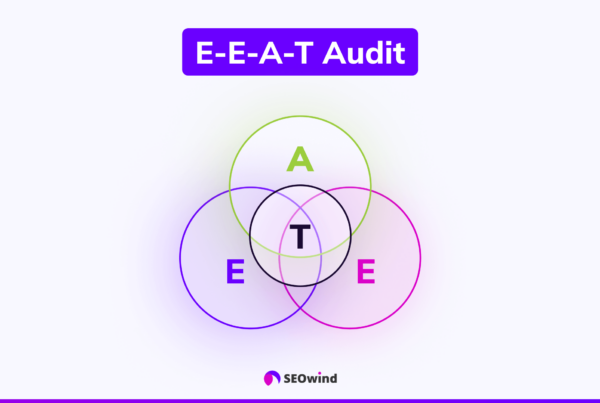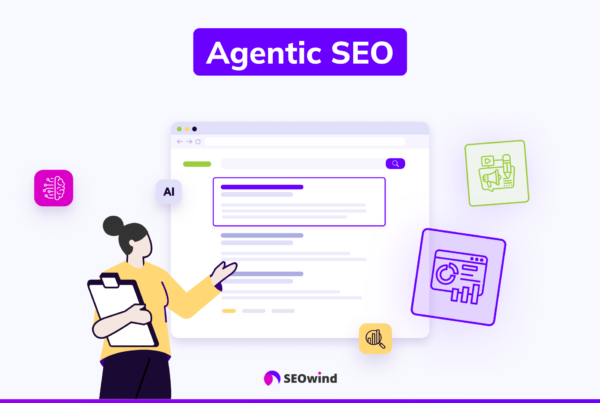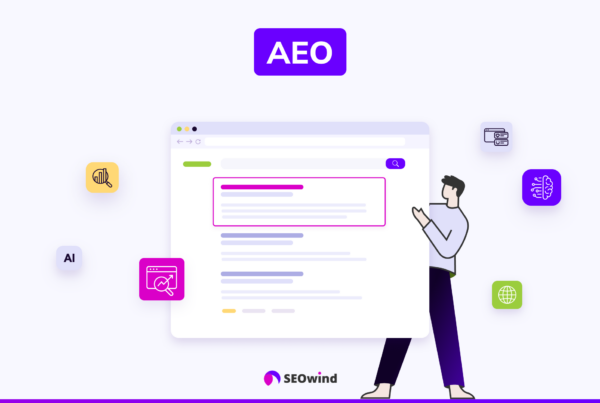The digital landscape is continuously evolving, and with the rise of AI, content creation has entered a new era. AI writing tools have become increasingly sophisticated and can generate various content formats, from blog posts and articles to poetry and scripts. However, this has sparked debates and concerns regarding Google’s stance on AI-generated content, particularly among content creators and SEO professionals. Does the search engine giant penalize such content, or is it a viable option for boosting online visibility?
Let’s review the intricacies of Google’s perspective on AI content, explore its quality guidelines, and uncover best practices for utilizing AI effectively in your content creation strategy.
Clarifying Google’s Stance on AI-Generated Content
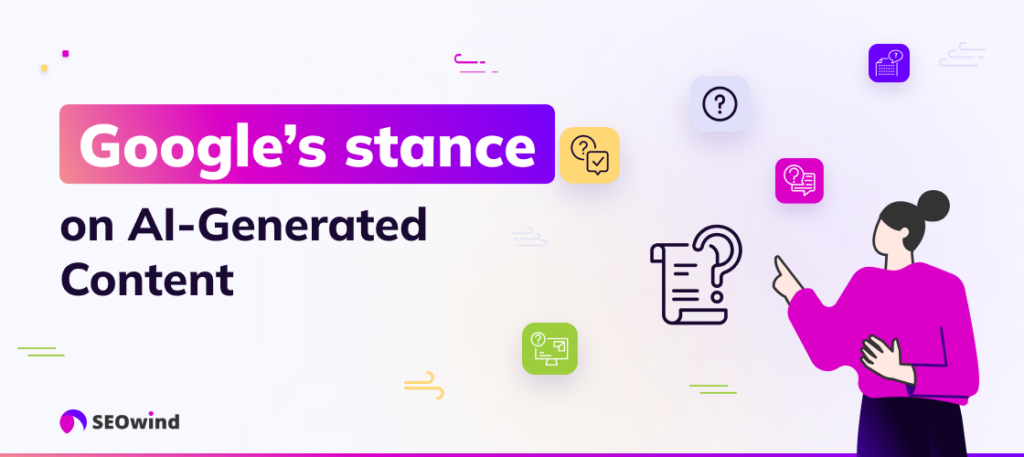
Google’s primary objective is to provide users with the most relevant and helpful content possible. Its search algorithms are constantly refined to ensure high-quality results that cater to user intent. When it comes to AI-generated content, Google’s stance is clear: the focus should always be on the value and helpfulness of the content, regardless of its origin.
Helpful Content
Google emphasizes the importance of helpful content that prioritizes users’ needs over search engine optimization (SEO) manipulation. The Helpful Content Update, introduced in August 2022, aimed to reward content that offers a satisfying user experience while devaluing content created primarily to rank higher in search results. This update applies to all content, including AI-generated content.
Google March Core Update 2024
Google’s frequent algorithm updates, like the March 2024 Core Update, often leave content creators and website owners wondering about the best strategies for success. So, how does this update impact the use of AI in content creation?
The March 2024 update didn’t specifically target AI-generated content. Instead, as industry experts highlighted, its primary focus was enhancing quality ranking and updating spam policies. This update demonstrates Google’s ongoing commitment to delivering the most relevant and valuable search results to its users. It’s also a gentle reminder that regardless of how content is created, whether by a human or AI, the emphasis should always be on quality and relevance.
Google’s stance is clear: content created primarily to manipulate search rankings will be penalized regardless of origin. The March 2024 update reinforced this position by expanding its scope to encompass more sophisticated content creation methods. This update ensures that even with advancements in AI technology, the core principles of quality and authenticity remain paramount.
Exploring Google’s Quality Guidelines for Content
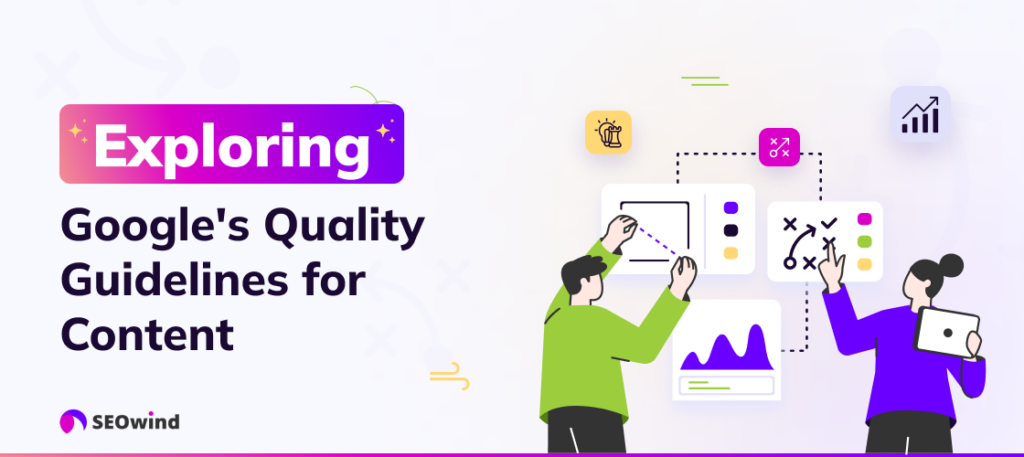
Google’s primary goal remains consistent: to deliver the most relevant and high-quality content to users. This commitment to quality is reflected in Google’s Search Quality Rater Guidelines, a document used by human evaluators to assess the quality of search results. Let’s discuss these guidelines and understand how they distinguish between high and low-quality content.
Distinguishing Between High-Quality and Low-Quality Content
Google’s guidelines emphasize several core characteristics of high-quality content. Firstly, it should be informative and comprehensive, demonstrating expertise and in-depth knowledge of the subject matter. Imagine you’re searching for information on training a puppy. A high-quality page would provide detailed instructions, tips, and advice from experienced dog trainers, leaving you feeling well-equipped to handle the task.
Secondly, the content should be trustworthy and credible. This means it’s factually accurate, well-researched, and supported by evidence. Consider a website offering financial advice. It would likely be deemed low-quality by Google’s standards if it’s filled with unsubstantiated claims and lacks references to reputable sources.
Furthermore, high-quality content should be engaging and well-written. It should be easy to read, understand, and navigate, keeping the reader interested and providing a positive user experience.
On the other hand, low-quality content exhibits the opposite characteristics. It may be poorly written, inaccurate, or misleading. In addition, it could lack substance by failing to provide any real value to the reader. Ultimately, Google aims to prioritize content that genuinely benefits users, helping them find the information they need and accomplish their goals.
The Role of E-E-A-T in Assessing Content Quality
E-E-A-T stands for Expertise, Experience, Authoritativeness, and Trustworthiness. These are the core principles that Google uses to evaluate the quality of content, especially for topics that could impact a person’s health, finances, or well-being (Your Money or Your Life – YMYL).
Let’s break down each element of E-E-A-T:
- Expertise: Does the content creator have the necessary knowledge and skills in the subject matter? For example, an article about medical treatments should be written by a qualified healthcare professional.
- Experience: Does the content reflect real-world experience and firsthand knowledge? A travel blogger who has actually visited a destination can offer more valuable insights than someone who hasn’t.
- Authoritativeness: Is the content creator or website recognized as a reliable source of information in their field? Established news organizations or academic institutions often possess high authority.
- Trustworthiness: Is the content accurate, objective, and free from bias or misleading information? Websites with clear contact information and a positive reputation tend to be more trustworthy.
As you can see, E-E-A-T plays a crucial role in determining content quality. It’s not just about the information but also the source and the creator’s credentials. Understanding and aligning your content with these principles is essential for achieving success in Google’s search results. Remember, Google’s primary goal is to satisfy its users, so prioritizing quality should always be your top priority.
The Detection of AI-Generated Content by Google
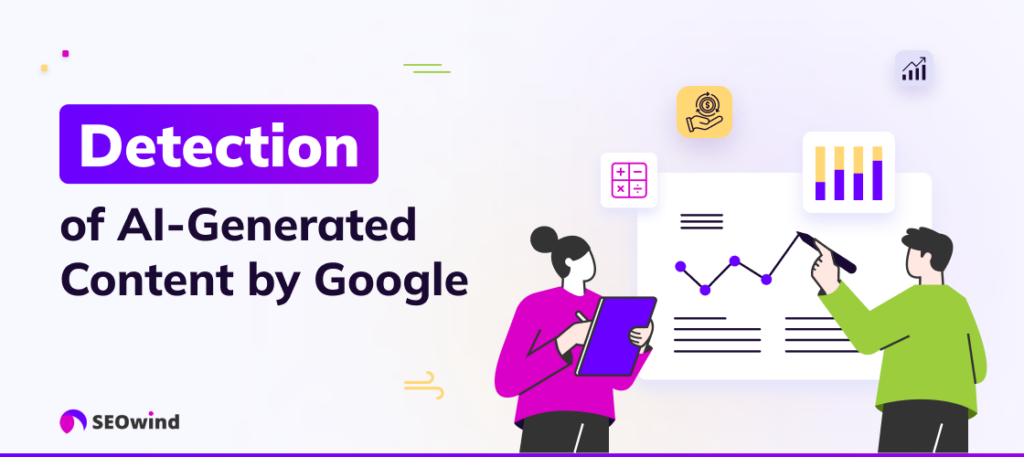
The cat-and-mouse game between AI content creators and Google’s algorithms continues to evolve. As AI technology advances, Google’s ability to identify and differentiate AI-generated content from human-created content improves. While the specifics of their detection methods remain shrouded in secrecy (this is understandable, as it prevents manipulation), we can gain insights into the general approach.
Technological Advances in Content Identification
Google leverages machine learning and natural language processing (NLP) to analyze content and identify patterns that distinguish human-written text from AI-generated text.
“Google uses Natural Language Processing algorithms to analyze text patterns common in computer-generated write-ups,” a recent Rock Content article explains. These algorithms can detect subtle cues like sentence structure, word choice, and even the overall flow of ideas, which often differ between human and AI writers.
Furthermore, Google’s vast dataset of web content allows the company to train its algorithms on a massive scale. This enables the recognition of even the most sophisticated AI-generated content with increasing accuracy. As AI models become more advanced, so will Google’s detection methods, ensuring a continuous effort to maintain the quality and integrity of search results.
AI vs. Human-Created Content: Identifying the Differences
While AI content generation tools have come a long way, there are still key differences that set human-created content apart. Humans possess a level of creativity, critical thinking, and emotional intelligence that AI currently struggles to replicate.
Here are some ways that human-created content often shines:
- Originality and Creativity: Humans excel at generating unique ideas and perspectives, while AI often relies on existing data and patterns, potentially leading to repetitive or unoriginal content.
- Critical Thinking and Analysis: Humans can analyze information, form judgments, and present well-reasoned arguments, whereas AI-generated content may lack depth and insightful analysis.
- Emotional Intelligence and Empathy: Humans can understand and respond to emotions, creating content that resonates with readers on a deeper level. Meanwhile, AI struggles to replicate this human touch.
- Adaptability and Contextual Understanding: Humans can adapt their writing style and tone to suit different audiences and contexts. AI models often struggle with nuances and may produce content that feels generic or out of place.
The Myths and Realities: Does Google Penalize AI Content?
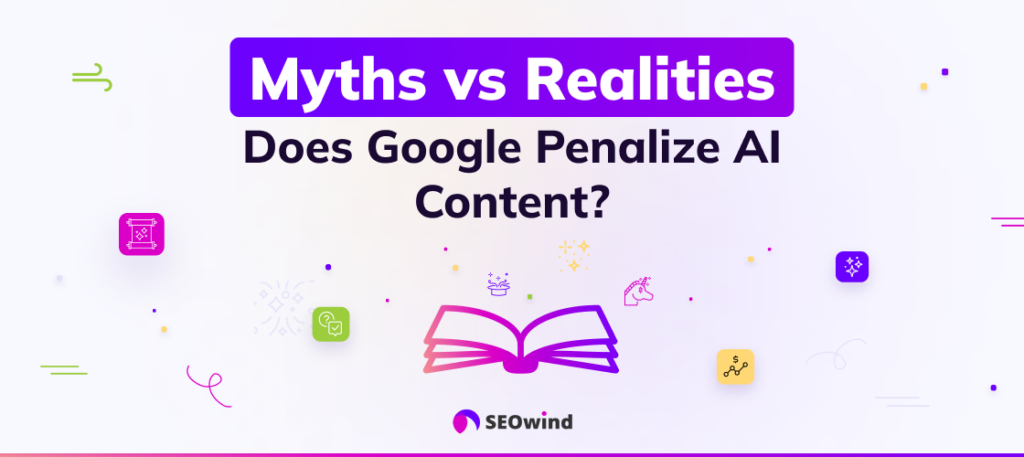
The question of whether Google penalizes AI content has become a hot topic. Many myths and misconceptions shroud this issue, causing confusion and uncertainty among content creators and website owners. Let’s debunk some myths and get to the bottom of this.
Analyzing Recent Updates and Statements from Google
To understand Google’s stance on AI-generated content, it’s essential to analyze the company’s recent updates and statements. In its guidelines, Google emphasizes the importance of providing high-quality content that benefits users. They focus on the value and originality of the content rather than the tools or methods used to create it. This means that whether a human or AI creates content is not the primary concern for Google. What truly matters is the quality, relevance, and value it offers to users.
Google has explicitly stated that it does not penalize AI content solely based on its origin. However, if the AI-generated content is of low quality, lacks originality, or violates Google’s guidelines, it may be penalized, just like any other low-quality content. Google’s algorithms are designed to identify and prioritize high-quality material that aligns with search intent and provides a positive user experience. So, whether AI-generated or human-written, content that fails to meet these criteria will likely struggle to rank well in search results.
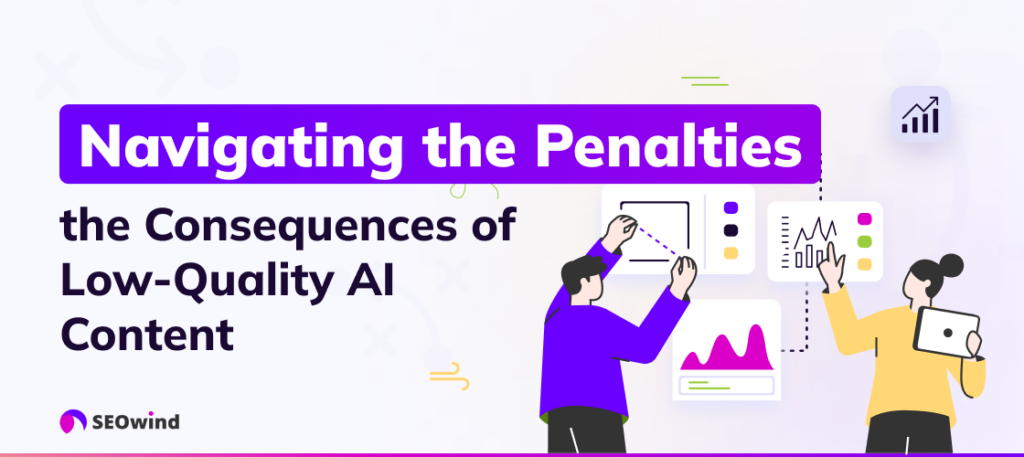
Let’s face it. Nobody wants to wake up to find their website penalized by Google. As we’ve discussed, Google doesn’t inherently penalize AI-generated content. However, low-quality content, regardless of its origin, can trigger penalties, which can significantly impact your website’s visibility and organic traffic. So, we need to explore ways to recover and regain Google’s trust.
Impacts on Site-Wide vs Individual Page Rankings
Google’s approach to penalties for low-quality content can vary. Sometimes, the penalty might affect only the specific page containing the problematic content. This means the rest of your website’s ranking remains largely unaffected. However, in more severe cases or when there’s a pattern of low-quality content, the penalty can extend to your entire website, impacting its overall ranking in search results.
So, how can you tell which type of penalty you’re facing? Google Search Console is your go-to tool. It provides valuable insights into your website’s health and performance, including notifications about any action taken against your site. Manual actions are penalties imposed by Google’s human reviewers when they find content that violates Google’s Webmaster Guidelines.
Recovering from a Penalty: Steps to Regain Google’s Trust
If you find yourself on the receiving end of a Google penalty, there are steps you can take to address the issues and recover your website’s standing. Let’s walk through this process:
- Identify the Problem: The first step is understanding why the penalty was imposed. Was it due to thin content, keyword stuffing, or duplicate content? Google Search Console can provide clues, and thoroughly reviewing your content is crucial.
- Take Corrective Action: Once you’ve identified the issue, it’s time to take action. This might involve removing or rewriting low-quality content, addressing technical SEO issues, or disavowing spammy backlinks.
- Submit a Reconsideration Request: After you’ve made the necessary improvements, you can submit a reconsideration request to Google through the Search Console. In this request, explain the actions you’ve taken and demonstrate your commitment to providing high-quality content.
- Be Patient: Recovering from a penalty takes time. Google needs to re-evaluate your website, which can be a gradual process. Continue producing high-quality content and adhering to Google’s guidelines.
Remember, creating valuable, engaging content should always be your primary focus. By prioritizing quality and the user experience, you’ll avoid penalties and build a strong foundation for long-term SEO success.
Best Practices for Utilizing AI in Content Creation
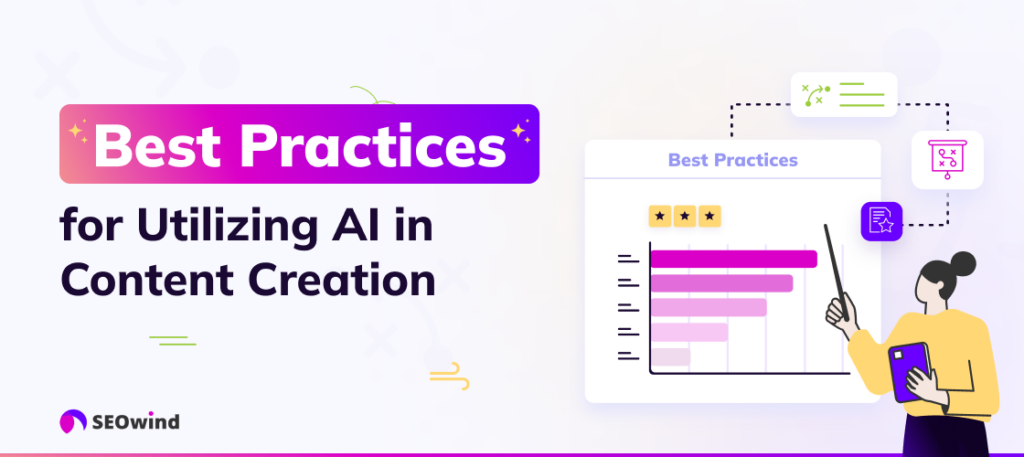
The emergence of AI writing tools has undoubtedly transformed the content creation landscape. These tools offer efficiency and speed, but it’s crucial to approach them strategically to ensure quality and compliance with Google’s guidelines. Remember, while AI can be a powerful ally, it should complement, not replace, human creativity and expertise. Let’s explore some best practices for effectively utilizing AI in your content creation process.
Balancing AI Efficiency with Human Creativity – the CyborgMethod™
The key to successful AI integration lies in the CyborgMethod™. This approach emphasizes the synergy between human ingenuity and AI capabilities. Think of it as a collaboration in which AI handles the heavy lifting of research, data analysis, and initial drafting while you, the human expert, provide the strategic direction, creative insights, and the final polish.
My go-to tool for implementing the CyborgMethod™ is SEOwind. Unlike many AI writing tools that simply scrape the web for surface-level content, SEOwind delves deeper. It conducts thorough SEO and SERP analysis, incorporating relevant keywords and search intent into the content. This ensures that the generated text isn’t just coherent but also strategically optimized for search engine visibility.

Conduct Research and Search Intent Analysis
Whether or not you’re using AI, it is essential to understand your audience and their search intent before creating content. What are they looking for when they type a query into Google? What problems are they trying to solve? Or what questions are they trying to answer? Thorough keyword research and search intent analysis provide the foundation for creating content that resonates with your target audience and ranks well in search results.
Tools like SEOwind can significantly expedite this process. They analyze top-performing content and identify relevant keywords and topics, giving you a clear understanding of what your audience is seeking. This data-driven approach ensures that your AI-generated content is aligned with user expectations and search engine algorithms.
Ensuring Compliance with Google’s Webmaster Guidelines
Google’s Webmaster Guidelines are your compass for navigating the SEO landscape. These guidelines emphasize the importance of high-quality, user-centric content. While AI can assist in content creation, it’s your responsibility to ensure that the final product adheres to these guidelines.
Here are some key points to remember:
- Avoid automatically generated content: Google explicitly discourages content that AI solely generates without human oversight or editing.
- Focus on E-E-A-T: Expertise, experience, authoritativeness, and trustworthiness are crucial factors that Google considers when evaluating content quality. Ensure your content reflects these qualities.
- Prioritize originality and value: Don’t create content just for the sake of it. Strive to create original, insightful pieces that offer genuine value to your readers.
By adhering to these guidelines, you can leverage AI effectively without compromising your website’s SEO performance.
Rewarding High-Quality Content
Google doesn’t penalize content simply because AI generates it. It penalizes low-quality content, regardless of its origin. As long as your AI-generated content is high-quality, original, and provides value to users, it has the potential to rank well in search results. In fact, studies have shown that high-quality AI content that adds value for users will not be penalized by Google.
The key takeaway is this: focus on quality rather than the tool used to create the content.
Leveraging AI While Maintaining Quality and Originality
AI writing tools like SEOwind can be invaluable assets in your content creation arsenal. They can help you:
- Scale up content production: Generate more content in less time, allowing you to maintain a consistent publishing schedule.
- Conduct in-depth research: Gain valuable insights into your target audience, relevant keywords, and search intent.
- Improve content quality: Ensure your content is well-structured, informative, and engaging.
However, it’s crucial to remember that AI is a tool, not a replacement for human creativity and expertise. By embracing the CyborgMethod™, conducting thorough research, adhering to Google’s guidelines, and prioritizing quality, you can harness the power of AI to elevate your content creation process while maintaining originality and SEO success.
Frequently Asked Questions About AI-Generated Content and SEO
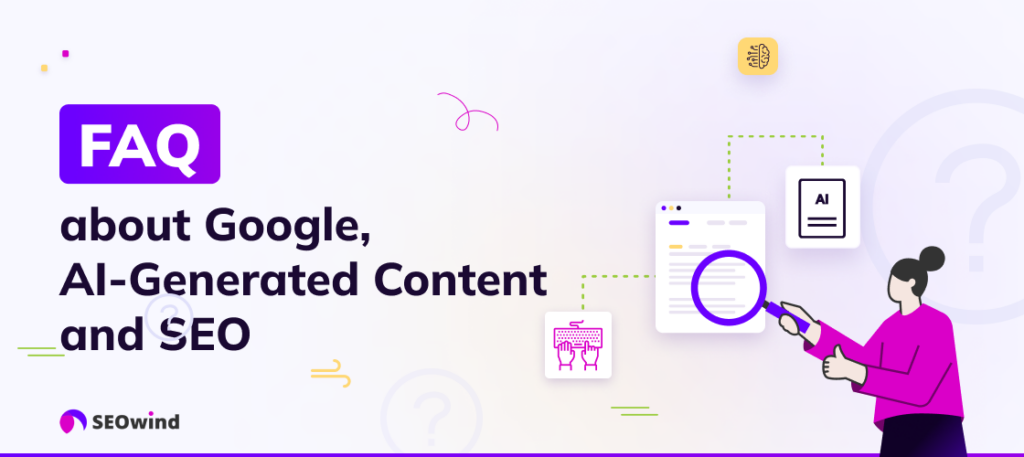
As the use of AI in content creation grows, it’s natural to have questions about its impact on SEO and Google’s ranking algorithms. Let’s address some of the most common concerns and clarify the relationship between AI-generated content and search engine optimization.
Is Google okay with AI content?
Google’s primary focus is on the quality of content, regardless of its origin. As long as the content is helpful, informative, and adheres to Google’s Webmaster Guidelines, it has the potential to rank well in search results. Google’s Helpful Content Update rewards good content, regardless of its origin.
Does Google rank AI content lower?
Google’s algorithms do not have an inherent bias against AI-generated content. The ranking of content, whether AI-generated or human-written, depends on its quality, relevance, and ability to satisfy user intent.
Does Google penalize AI-created content?
Google doesn’t penalize content simply because AI generates it. However, if AI-generated content is low-quality, spammy, or violates Google’s guidelines, it may be subject to penalties just like any other type of asset.
Can google rank AI Generated content?
Absolutely! High-quality AI content that aligns with user intent and demonstrates E-E-A-T can achieve excellent rankings on Google. The key is to use AI as a tool to enhance your content creation process, not as a replacement for human creativity and oversight.
Is your AI content getting indexed?
As long as your AI content is accessible to search engine crawlers and meets the quality standards expected by Google, it should be indexed without any issues. To ensure proper indexing, focus on creating valuable, well-structured content and maintaining a technically sound website.
Is using AI to Generate Web Content Against Google’s Guidelines?
Not at all. Google’s guidelines focus on the quality and value of content, not the method of creation. As long as you’re using AI responsibly and ethically to create high-quality content that benefits users, you’re in compliance with Google’s guidelines.
Can Quality AI-generated content rank successfully on Google Search?
Yes, it definitely can! When used strategically, AI can assist in generating content ideas, conducting research, and even crafting compelling narratives. By combining the efficiency of AI with human expertise and creativity, you can produce content that resonates with your audience and performs well in search results.
Can I Use AI to Write My Content From Start to Finish?
While AI writing tools have become increasingly sophisticated, relying solely on AI to create content from start to finish may not be the best approach. The human touch is still crucial for ensuring quality, originality, and the ability to connect with your audience on a deeper level. Consider using AI as a partner in your content creation process, leveraging its strengths while maintaining your unique voice and perspective.
